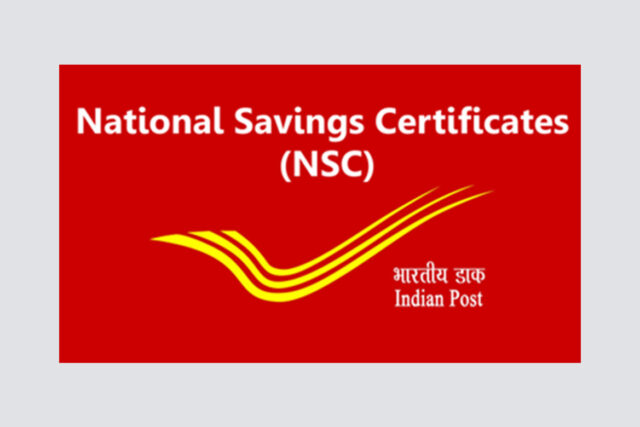National Savings Certificates are a fixed-income investment product that may be opened at a post office. It is secure and a low-risk product, strategy.
The NSC system is available at all NSC post offices, and it is aggressively promoted by the Indian government. The program has gained a lot of popularity in India as a result of the country’s post office abundance and accessibility.
The main objective of the program is to motivate people to save little to medium sums of money, and it provides tax benefits for doing so. The scheme is pushed by the Indian government, thus the risks of investing in it are minimal.
Non-resident Indians (NRIs) and Hindu Undivided Families (HUF) are ineligible to participate in the plan because it was designed primarily for individuals. Those who wish to invest in the NSC plan must be Indian citizens.
Read More: Definition of a Demand Deposit, Types of Accounts, and Criteria
NSC Qualifications
The following is a list of the requirements for investors to buy NSCs:
- The involved party must be a citizen of India.
- No set age limit applies when purchasing a certificate.
- Indians who do not reside in India are not allowed to invest in NSC.
- A person may invest alongside another adult or buy an NSC on behalf of a minor.
- HUFs and Trusts are ineligible to invest in the scheme under NSC VIII Issue.
current update
Interest rates on National Savings Certificates were lowered by 110 bps.
The interest rates for modest savings schemes were reduced by the Central Government by up to 140 basis points (bps) for the April to June quarter of the current fiscal year. The National Savings Certificate interest rate was decreased by 110 basis points. From 7.9% to 6.8%, the interest rate has been lowered. A yearly calculation is made to determine the interest the scheme generates. The program is a project of the Indian government and can be registered through post offices. The plan has two maturities, each lasting five and ten years.
The program would offer tax savings of up to Rs. 1.5 lakh. The amount in the account may also be used as collateral for loans. The interest rates for micro-savings programs are updated by the government every three months. Following a recent 75-bps reduction in the repo rate by the RBI, the government opted to lower interest rates.
Features NSC
The following list includes the scheme’s key characteristics:
Investment requirements: You must invest at least Rs. 100 to obtain a certificate. The certificate comes in amounts of 10,000, 5,000, 1,000, 500, and 100 rupees. People can start out by making tiny investments and then raise them as soon as it is practical.
Maturity tenure: The two maturity durations of the plan that people can select from are 5 years and 10 years.
Interest rate: At the moment, interest is compounded annually and has been lowered from 7.9% to 6.8%. But the interest is only payable when the loan matures. A subscriber who invests Rs. 100 will, for instance, receive Rs. 146.93 after 5 years.
Nominations: The investor may add more nominations, including family members and minors. The nominee will be entitled to inherit the scheme in the event that the investor dies while the scheme is still in effect.
Transfer of certificate: The National Security Certificate (NSC) may be transferred between post offices. A certificate may also be transferred from one person to another. However, the certificate will continue to be the same, with the name of the new owner being printed there and the name of the previous owner being rounded.
Different NSC issues: At first, there were just two types of certificates available: the NSC IX Issue and the NSC VIII Issue. But as of December 2015, the Indian government had given up on the NSC IX Issue. As a result, the only publication available is the NSC VIII Issue.
Loans against NSC: The NSC may be offered to banks as security or as collateral to obtain loans. The relevant postmaster must, however, give his or her approval before the certificate can be transferred to the bank.
Purchase of NSC: After submitting the required documents, the plan may be purchased through post offices.
Benefits of NSC
The main advantages of funding the NSC are as follows:
One of the main advantages of doing so is the potential tax savings that customers may experience on their investments in the NSC. The returns under this plan are also guaranteed. Because it can provide retirees with a reliable income, the NSC scheme is well-liked.
With the exception of interest earned in the last year, the remaining interest that is generated is tax-free.
People can get a duplicate certificate if they lose their original certificate.
People have the opportunity to keep investing in the program even after it has reached maturity.
It is possible to transfer the certificate from one person to another. During the lock-in time, it is only permitted once.
The interest that is earned is compounded annually and added back into the program. The investor’s investment grows as a result without having to buy certificates.
documents needed by the NSC
The following is a list of the supporting documents needed to buy an NSC:
The submission of the NSC application is required.
For verification, investors are required to provide an original form of identity, such as a passport, permanent account number (PAN) card, voter ID, driver’s license, senior citizen ID, or government ID.
A photo must be provided by the investor.
Investors are required to produce address proof, such as a passport, phone bill, power bill, bank statement, check, and a certificate or ID card that has been issued by they also made an investment in the post office.
Read More: New Lamborghini Aventador will be unveiled on March 29.
Tax advantages offered by the NSC
The tax advantages of NSC investments for individuals are listed below:
Under Section 80C of the Income Tax Act of 1961, you are eligible to obtain tax benefits of up to Rs. 1.5 lakh for your NSC contributions.
For tax purposes, the interest that is annually generated by NSC investments is regarded as a fresh investment.
The National Savings Certificate does not apply Tax Deducted at Source (TDS). The tax on the earned interest must be paid, nonetheless, in accordance with the marginal income tax rates.





